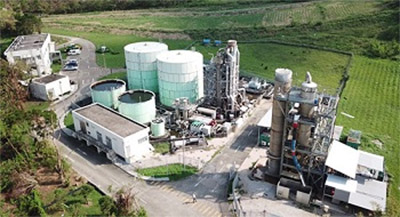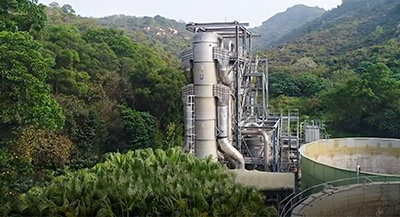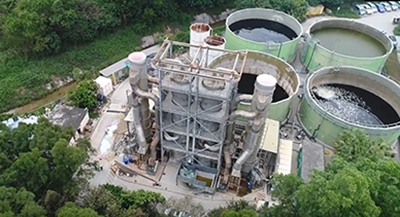Ammonia Recovery Technology
Ammonia Recovery from Leachate and Wastewater
If you have a requirement for the treatment of wastewater with particular regard to ammonia, please fill out the questionnaire attached to this link. Fill it in online and submit it directly. We will get back to you with a comprehensive response as soon as possible.
AMMONIA RECOVERY TECHNOLOGY
If you have a requirement for the treatment of wastewater with particular regard to ammonia, please contact us. We will give your communication the highest priority.
Contaminated Water
Leachate is the liquid that passes through a landfill and is contaminated by interaction of dissolved or suspended elements. Treatment of leachate remains one of landfill engineering’s most complex problems to solve.
The WENT landfill site in Hong Kong is a major installation serving the city of Hong Kong. The site treats leachate for high levels of ammonia prior to release to the environment. The system uses waste landfill gas to provide a source of heat for the process.

General Information
- Reliable, predictable ammonia removal
- Good for bulk removal of ammonia
- Discharge levels of less than 10 mg/l
- pH adjustment and thermal processes available
- Site specific design-for-purpose
Size Range
Ammonia strippers supplied by Organics can be used for liquid flows of up to 5,000 cubic meters per day. Ammonia reduction of 10:1 can be accomplished with ease. Higher levels of removal may require elevated temperatures, high pH levels or multiple columns.

Key Features
- A low cost method of treating one particular aspect of leachate or other fluids polluted with the ammonium ion.
- This technology will be applicable where the only parameter falling outside of a discharge consent requirement is ammonia.
- Compact plant operating on a physical treatment method and hence more reliable than biological treatment systems.
- Options to instrument the plant for remote monitoring and control.

Typical Applications
Ammonia stripping has its place in the range of techniques applied to landfill leachate treatment where ammonia levels must be reduced but other component concentrations, such as COD and heavy metals, are within the limits of a discharge consent.
The cost of such a system will in general be low compared with other options that may be considered. The power requirement for air circulation is less than that for an equivalent aerated system and water pressure heads required will be a function of the height of the stripper column. When operated with in-line pre-filtration such units can operate for many years with very little maintenance.

